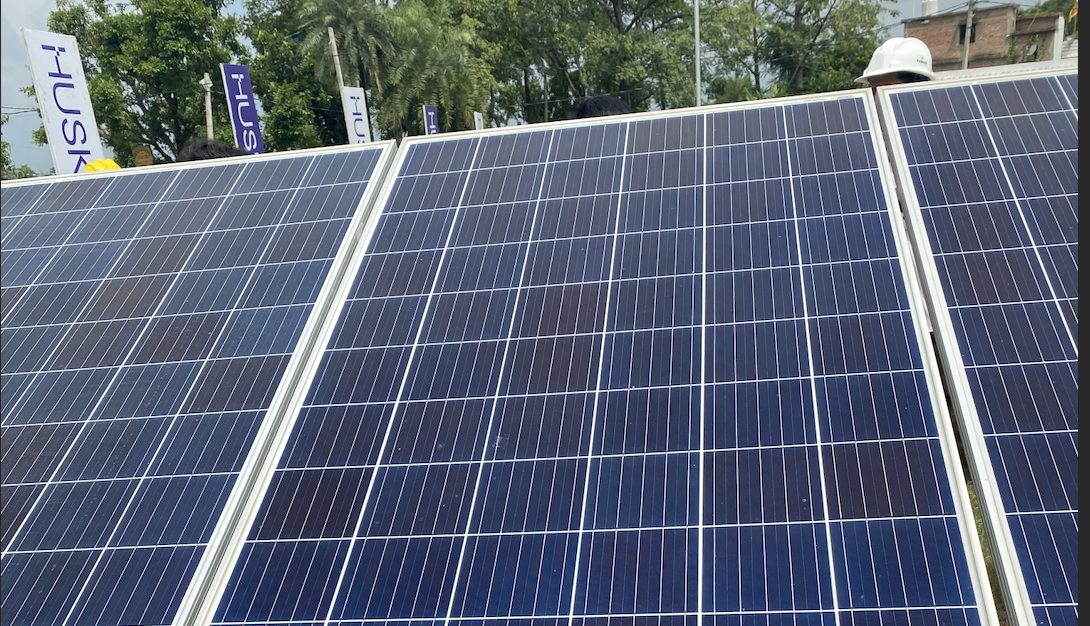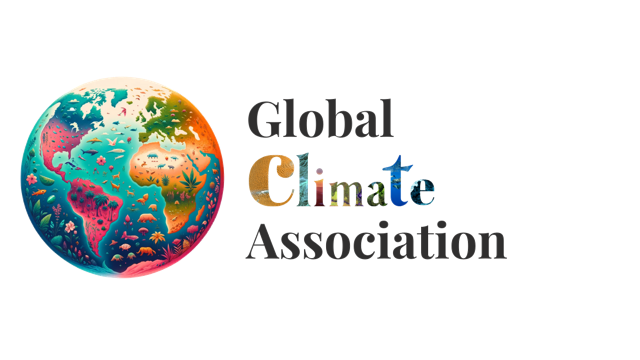Bridging the Energy Divide: Accelerating Progress on SDG7 Amidst Climate Challenges
 Dr. Poulomi Chakravarty
Dr. Poulomi Chakravarty

As we approach the five-year mark for achieving the Sustainable Development Goals (SDGs), the urgency for progress on SDG7—universal access to clean, affordable energy—has never been more pressing. Despite our efforts, the world is not on track to meet this critical goal. The planet is experiencing unprecedented heat, with each month since June 2023 breaking records as the hottest on record. June alone marked the third consecutive month exceeding the 1.5°C limit set by the Paris Agreement.
The consequences of this extreme heat are severe: prolonged droughts, record-breaking rainfall, intensified storms, and shifting weather patterns. The communities most affected by these changes are often those least responsible for climate change. A recent joint analysis by leading global institutions, including the International Energy Agency (IEA), the International Renewable Energy Agency (IRENA), the United Nations Statistics Division, the World Bank, and the World Health Organization, reveals a troubling shortfall in our pursuit of SDG7. Current measures are inadequate to get us back on track.
Since the early 2000s, the percentage of the global population with access to electricity has risen from just over 75% to 91%. However, this progress is insufficient given the accelerating population growth. Recent disruptions—such as the COVID-19 pandemic, geopolitical conflicts like Russia’s war in Ukraine, and instability in the Middle East—have reversed some of the gains. In 2022, the number of people without access to electricity rose to 685 million, an increase of ten million from the previous year. If this trend continues, over 660 million people will remain without electricity by 2030, marking a failure to meet SDG7.
Significant advancements have been made in connecting populations in Asia and Latin America, but Sub-Saharan Africa remains a critical challenge, housing 80% of the world's unelectrified population. With hundreds of millions at risk, immediate and concerted action is essential to avoid further setbacks. The pace of renewable energy adoption is insufficient to meet the Paris Agreement’s mid-century net-zero targets or address the urgent development needs of those in energy poverty.
Yet, there are grounds for optimism. As noted by Dr. Sultan Al Jaber, President of COP28, "The energy transition is not a choice; it is a necessity for sustainable development. We must act swiftly and collaboratively to ensure no one is left behind." This spirit of collaboration is exemplified by recent initiatives such as the World Bank and the African Development Bank’s groundbreaking partnership to provide electricity to 300 million people in Africa by 2030.
Recent reports in The Guardian and Financial Times highlight successful projects in Kenya and India, where decentralized renewable energy systems have transformed rural communities. In Kenya, the expansion of mini-grids powered by solar energy has not only brought electricity to remote areas but has also boosted local economies by enabling businesses to operate more efficiently and children to study after dark. Similarly, in India, the government’s Pradhan Mantri Kisan Urja Suraksha evam Utthan Mahabhiyan (PM-KUSUM) scheme has empowered farmers by subsidizing solar-powered irrigation systems, reducing dependency on expensive and unreliable diesel pumps.
To close the gap, we must bolster existing policies and increase investments, particularly in remote and low-income areas where most of the unelectrified population resides. The current focus on greening the grid and reducing fossil fuel consumption in wealthier countries must be balanced with a commitment to improving energy access in poorer regions. Providing a modern energy minimum of 1,000 kilowatt-hours per person annually is crucial, yet the average per capita energy consumption in Sub-Saharan Africa is only 180 kWh, compared to 6,000-13,000 kWh in wealthier nations.
By 2024, clean energy investment in emerging markets and developing economies outside China is expected to remain around 15% of the global total—far short of what is needed. With economic crises looming in countries like Nigeria, unlocking climate finance for energy access is more urgent than ever. However, the successful execution of renewable energy projects, like those seen in Kenya and India, serves as a model for other regions. As highlighted in The New York Times, the success of these initiatives relies heavily on knowledge transfer and capacity building, ensuring that local communities can manage and maintain these systems sustainably.
Energy creates opportunities. Investments in electricity, coupled with funding for tools that harness that energy—such as solar-powered water pumps, refrigerators, and essential services—can boost incomes, productivity, and job creation. Achieving these goals will require unprecedented international collaboration. As Dr. Al Jaber emphasizes, "Bold action and unity are paramount. We must ensure that the energy transition leaves no one behind."
The world cannot afford another year of stagnation on SDG7. To reach net-zero emissions, we must undertake an energy transition that is inclusive and equitable. This is our moment to act decisively and make a tangible difference for future generations.
References:
International Energy Agency (IEA), International Renewable Energy Agency (IRENA), United Nations Statistics Division, World Bank, and World Health Organization. (2023). Tracking SDG7: The Energy Progress Report. Retrieved from https://www.irena.org
The Guardian. (2023). Kenya’s Solar-Powered Mini-Grids Transform Rural Lives. Retrieved from https://www.theguardian.com/environment/2023/kenya-solar-mini-grids
Financial Times. (2023). India’s PM-KUSUM Scheme Empowers Farmers with Solar-Powered Irrigation. Retrieved from https://www.ft.com/india-pm-kusum-solar-irrigation
Sultan Al Jaber, COP28 President. (2024). Speech at the Global Energy Transition Forum. Retrieved from https://www.cop28.com/speeches/sultan-al-jaber-global-energy-transition
New York Times. (2023). Knowledge Transfer as Key to Sustainable Renewable Energy Projects. Retrieved from https://www.nytimes.com/2023/energy/renewable-projects-knowledge-transfer
World Bank & African Development Bank. (2023). Partnership to Provide Electricity to 300 Million People in Africa by 2030. Retrieved from https://www.worldbank.org/en/news/2023/afdb-world-bank-electricity-africa👉
Paris Agreement. (2015). Paris Climate Agreement. United Nations Framework Convention on Climate Change (UNFCCC). Retrieved from https://unfccc.int/process-and-meetings/the-paris-agreement/the-paris-agreement
United Nations. (2023). Sustainable Development Goals Report 2023. Retrieved from https://unstats.un.org/sdgs/report/2023
Guest Blog
👉 This article was authored by Rizul Choudhury, Marketing Director for India at Husk Power Systems.
Rizul Choudhury has over 16 years of experience in Brand Management, Go-to-Market Strategy, and Strategic Marketing. His work focuses on advancing sustainability, energy access, and socio-economic development, particularly in rural communities. A strong advocate for gender inclusion and climate risk mitigation, Rizul specializes in creating and executing impactful strategies aligned with the United Nations Sustainable Development Goals (SDGs). He is dedicated to partnering with international organizations to drive positive change in vulnerable regions globally.
👉 It was edited and published by Dr. Poulomi Chakravarty, Founder of the Global Climate Association.
👉 Please note that the views expressed in this article are those of the author and do not necessarily reflect the official stance of any affiliated organizations.
Please visit the official website of Global Climate Association for more interesting information on climate science, sustainability, literacy tools, initiatives and narratives at https://globalclimateassociation.org/./
Subscribe to my newsletter
Read articles from Dr. Poulomi Chakravarty directly inside your inbox. Subscribe to the newsletter, and don't miss out.
Written by

Dr. Poulomi Chakravarty
Dr. Poulomi Chakravarty
Welcome to the GCA Blog: Climate Communications. I'm Poulomi Chakravarty, the founder of the Global Climate Association. Our blog brings to light climate change issues and encourages active discussions and actions. We share the latest in climate science, inspiring stories, and practical solutions. Join our journey to make a meaningful difference in the fight against climate change.